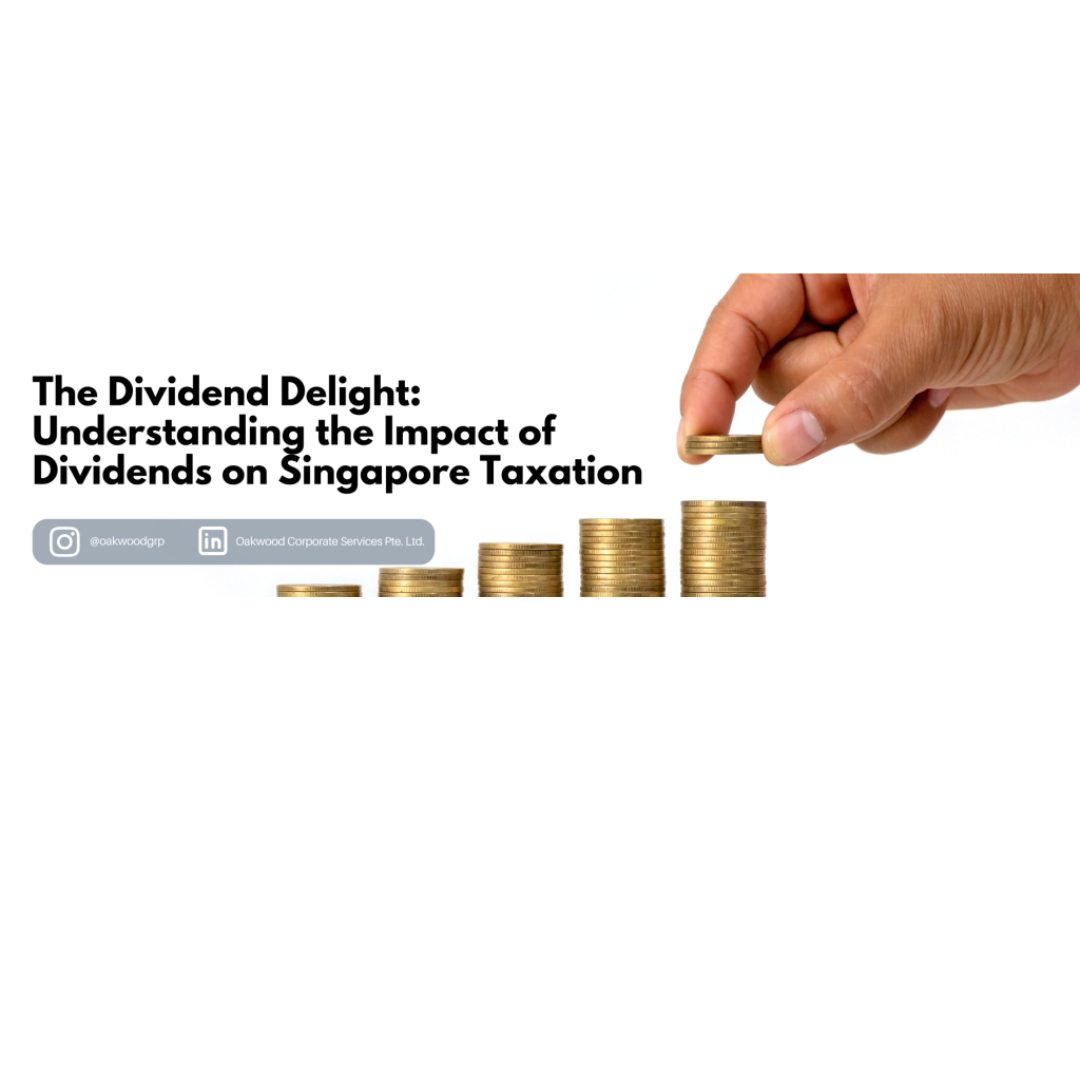
The Dividend Delight: Understanding the Impact of Dividends on Singapore Taxation
Investors get a sweet reward in the form of dividends, which is the portion of a company’s profits that is distributed to its shareholders. Dividends play a vital role in encouraging investments and creating shareholder wealth in Singapore, which has an economy that thrives on a climate that is conducive to business. Despite this, dividends have repercussions on the taxation environment of the Lion City that go beyond their attraction from a financial standpoint. In the following paragraphs, we will investigate the unique dynamic that exists between dividends and Singapore’s tax system.

Singapore’s Attractive Tax Regime
Singapore’s tax regime is renowned for its simplicity and attractive rates, making it an ideal destination for businesses and investors alike. The city-state adopts a territorial-based tax system, where only income earned within its borders is taxable. Additionally, Singapore practices a single-tier tax system, ensuring that corporate profits are taxed only once at the corporate level. This has a profound effect on dividend taxation, offering a compelling proposition for shareholders.
Tax Exemption for Foreign-Sourced Dividends
One of the most appealing aspects of investing in Singapore is the tax treatment of foreign-sourced dividends. Under the Foreign-Sourced Income (FSI) exemption scheme, Singaporean tax residents enjoy tax exemption on dividends received from foreign subsidiaries under certain conditions. For instance, the foreign jurisdiction from which the dividend originates must have a headline tax rate of at least 15%, and the income must have been taxed in the foreign jurisdiction. This exemption aligns with Singapore’s efforts to avoid double taxation and encourages businesses to expand their global footprint.
Singapore’s One-Tier Tax System and the End of Double Taxation
In 2003, Singapore transitioned to a one-tier corporate tax system, effectively eliminating the practice of taxing dividends at both the corporate and individual levels. This means that when a Singaporean company pays taxes on its profits, dividends distributed to shareholders are tax-free in their hands. This creates an appealing environment for investors, as they can enjoy the full fruits of their investments without the burden of additional taxation.
Individual Shareholders and Taxation
For individual shareholders, Singapore practices progressive tax rates, wherein the tax burden increases with higher income levels. However, dividends received from Singaporean companies are tax-free for individual shareholders, thanks to the one-tier tax system. This has been a boon for both local and foreign investors, encouraging them to reinvest their dividends for future growth.
The Impact of Corporate Shareholders
Corporate shareholders in Singapore also benefit from the one-tier tax system. Dividends received by one company from another are entirely exempt from tax. This encourages businesses to reinvest in each other, fostering a supportive ecosystem that drives economic growth.
Taxation of Real Estate Investment Trusts (REITs)
Singapore’s real estate investment trusts (REITs) are a popular investment option, particularly due to their favorable tax treatment. REITs are required to distribute at least 90% of their taxable income to shareholders regularly. Consequently, the income received from REITs is exempt from tax at the corporate level, and individual shareholders enjoy tax-free dividends.
In sum, dividends play a crucial role in driving investment and shareholder wealth in Singapore. The country’s attractive tax regime, featuring the one-tier tax system and exemptions for foreign-sourced dividends, further amplifies the allure of investing in Singaporean companies. The elimination of double taxation and the encouragement of reinvestment contribute to the nation’s reputation as a global financial hub and a favorable destination for both businesses and investors. As dividends continue to flourish, the Singaporean tax system stands strong as a key enabler of economic prosperity and growth.
News and blog
Latest Posts
Understanding Carbon Tax: Calculations, Impact, and Reduction Strategies
In the global effort to combat climate change, carbon taxation has emerged as a crucial

Ensuring Ethical Practices Singapore’s Anti-Corruption Laws and Compliance Measures


